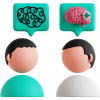How Diabetes Couse

Diabetes is a chronic medical condition characterized by elevated levels of blood sugar (glucose). There are different types of diabetes, and the causes can vary:
Type 1 Diabetes
- Cause: Type 1 diabetes is an autoimmune condition. The immune system mistakenly attacks and destroys the insulin-producing beta cells in the pancreas.
- Onset: Typically begins in childhood or adolescence, and the exact cause is not fully understood. Genetic and environmental factors may contribute.
Type 2 Diabetes
- Cause: Type 2 diabetes is primarily caused by insulin resistance, where the body’s cells do not respond effectively to insulin, and the pancreas cannot produce enough insulin to compensate. Genetics, lifestyle factors, obesity, and lack of physical activity are contributors.
- Onset: Commonly occurs in adulthood, but lifestyle changes in recent years have led to an increasing number of cases in children and adolescents.
Gestational Diabetes
- Cause: Gestational diabetes occurs during pregnancy when the body cannot produce enough insulin to meet the increased needs. Hormonal changes during pregnancy contribute to insulin resistance.
- Onset: Develops during pregnancy and usually resolves after childbirth. Women who have had gestational diabetes are at an increased risk of developing Type 2 diabetes later in life.

Other Types of Diabetes
- Cause: Other forms of diabetes can result from specific genetic conditions, diseases of the pancreas, certain medications, or other medical conditions.
- Onset: Varied, depending on the specific cause.

How Manav Herbal Control Diabetes Using Ayurveda
Manav Herbal employs a holistic approach rooted in Ayurveda and herbal medicine to support the management of diabetes. While I can provide general information based on the principles of Ayurveda and herbalism, it’s essential to note that individual responses to herbal remedies can vary, and consulting with a healthcare professional is advisable for personalized guidance.
Here are some general ways in which Manav Herbal might approach diabetes management using Ayurveda and herbal medicine:
Balancing Doshas:
- Ayurveda recognizes three doshas (Vata, Pitta, and Kapha) that govern various physiological and psychological functions. Diabetes, according to Ayurveda, may result from an imbalance in these doshas. Manav Herbal’s approach may involve herbal formulations aimed at restoring doshic balance.
Herbs with Antidiabetic Properties:
- Ayurveda has a rich tradition of using specific herbs known for their potential to help manage blood sugar levels. Herbs like bitter melon (Momordica charantia), fenugreek (Trigonella foenum-graecum), and turmeric (Curcuma longa) are examples of herbs with antidiabetic properties.
Neem (Azadirachta indica):
- Neem is often used in Ayurveda for its various health benefits, including potential antidiabetic effects. It may help improve insulin sensitivity and contribute to better blood sugar control.
Gymnema Sylvestre:
- Gymnema is known as the “sugar destroyer” in Ayurveda. It is believed to have properties that may help reduce sugar absorption in the intestines and support insulin function.
Bilberry (Vaccinium myrtillus):
- Bilberry is a herb that may be used for its potential to improve blood circulation, which can be beneficial for individuals with diabetes.
Ayurvedic Formulations:
- Manav Herbal may offer specific Ayurvedic formulations or herbal supplements designed to support diabetes management. These formulations often combine a variety of herbs to provide a holistic approach.
Lifestyle Recommendations:
- Ayurveda places significant emphasis on lifestyle, including dietary choices, exercise, and stress management. Manav Herbal might provide guidance on lifestyle modifications that complement herbal treatments for diabetes.
It’s crucial to approach herbal remedies with caution and under the guidance of a healthcare professional, especially for individuals managing chronic conditions like diabetes. Additionally, while herbal remedies may offer supportive benefits, they are not a substitute for conventional medical treatments prescribed by healthcare professionals.








